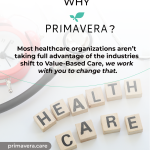It is no secret that healthcare can be complicated and oftentimes overwhelming, and when it comes to healthcare data it is no exception. This leads healthcare leaders to ask the question how can a healthcare organization improve their information flow to ultimately improve patient outcomes? According to Healthcare IT Today, “A future of lower cost and higher quality healthcare – rapidly growing adoption of health information technology is a key lever in achieving that future. Achieving this goal; however, requires strategies and technologies for overcoming the problem of disparate”. In this article we will explore what unified data means within the healthcare industry and the challenges and benefits that your healthcare organization may be impacted by embracing unified data.
What is Unified Data?
A unified data model brings together your healthcare organizations data from different sources into one centralized database, making it easier to analyze data. This concept is slowly being embraced by healthcare organizations, as the importance of data and value-based care increases. Unified data isn’t a trend that isn’t going anywhere anytime soon though. With that being said, with any change in the healthcare industry comes challenges and ultimately benefits as well.
Challenges You May Face
Industry leaders are reluctant to embrace unified data because of the challenges that an organization may face. Some of these challenges include:
- Different data formats from different systems
- Changing industry standards
- Finding the right time and resources to have unified data
Although embracing Unified Data may cause you to face these challenges, keep in mind the benefits far outweigh the challenges for both your healthcare organization and patients.
Benefits of Unified Data
The reality is data is the future of healthcare. Unified data allows you to make not only smarter decisions but decisions based upon data provided to you through your unified data approach. Other benefits include:
- Helps drive value in healthcare
- Identifies opportunity to reduces Cost
- Unlocks the value of complex healthcare data sets
- Provides you a full picture of a patient health care and cost
Many organizations are aware of these benefits but don’t know where to start and truly leverage their own data.
Prepare for the future
Simply put, you can make Smarter, Data-Driven Decisions with Unified Data. Unified data allows you to position your organization for success by leveraging your organization’s data from as many resources as possible. Primavera partners with healthcare organizations and their leads to do exactly that.
We have the power to integrate and process both your front-end EHR/EMR data and back-end Payers data as well. What does this mean? Our Analytics platform is able to provide a clear picture in real-time of your patient population risk, financial status, clinical gaps and patient gaps. This level of data integrity and unified data allows you to have a more proactive approach with your data and not to wait for outcomes to improve. HealthCare’s embrace of data and value-based care is not going away, and Primavera is on a mission to work with you no matter where you are at in this journey.
Reach out to our team to learn how we can help retrieve and analyze your healthcare organizations data!
(888)-667-2219








Recent Comments